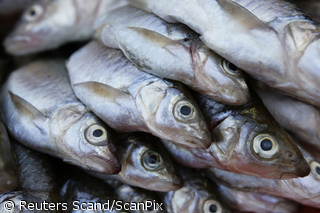The starring role in European most exciting financial theatrics.
Published:
5 April 1999 y., Monday
Ruggiero Magnoni, the 48-year-old co-head of European corporate finance at Lehman Brothers Inc.,
has been preparing all his life for his current starring role in some of Europe_s most exciting financial
theatrics. Born in Barcelona but bred in Milan, Magnoni got an MBA at Columbia University and in the mid- _70s joined the old Wall Street firm of Kuhn Loeb. During those years of political violence in Italy, New York seemed a good bet. Shortly after he signed on, Kuhn Loeb was snapped up by Lehman Brothers, and Magnoni rose to be head of international private placements. In the early 1980s, that meant Japan. Magnoni was soon taking the red-eye to Tokyo as often as once a week to help guide the flow of Japanese investment into U.S. real estate and equities. But by the mid-1980s, Europe was starting to stir. Lehman had become part of the American Express Co.-owned Shearson Lehman empire, and AmEx_ James D. Robinson III and Shearson_s Peter Cohen presciently chose Italy, with its backward business culture but high savings rate, as a place of potential. Magnoni took on Italian operations, based in Milan. Italy was soon booming, and Magnoni was cutting deals with magnates such as Carlo De Benedetti, in whose varied businesses Shearson ultimately invested more than $100 million. Magnoni is one of the only people in the world to have worked with both De Benedetti and his bitter political and business rival, media mogul-turned-politician Silvio Berlusconi. In 1995, Magnoni
structured the $1 billion deal that allowed Berlusconi to take his media group Mediaset public, a move
that smoothed the magnate_s push into politics.
Šaltinis:
Businessweek
Copying, publishing, announcing any information from the News.lt portal without written permission of News.lt editorial office is prohibited.
The most popular articles
 New legislation for pan-European supervision of credit rating agencies and a public debate on how financial institutions are managed.
more »
New legislation for pan-European supervision of credit rating agencies and a public debate on how financial institutions are managed.
more »
 On 2 June in Vilnius, Lithuania‘s Vice-Minister of Foreign Affairs Asta Skaisgirytė Liauškienė and Deputy Director General of the World Trade Organization Rufus H. Yerxa discussed the main issues on the international trade policy agenda, Russia‘s WTO accession and the changing role of China in the world economy.
more »
On 2 June in Vilnius, Lithuania‘s Vice-Minister of Foreign Affairs Asta Skaisgirytė Liauškienė and Deputy Director General of the World Trade Organization Rufus H. Yerxa discussed the main issues on the international trade policy agenda, Russia‘s WTO accession and the changing role of China in the world economy.
more »
 2157 former construction workers in Spain and 598 ex-employees at the Irish crystal glass company Waterford Crystal with suppliers could get €11 million in EU globalisation adjustment fund aid for training, self-employment and professional orientation under plans approved by the Budgets Committee on Wednesday.
more »
2157 former construction workers in Spain and 598 ex-employees at the Irish crystal glass company Waterford Crystal with suppliers could get €11 million in EU globalisation adjustment fund aid for training, self-employment and professional orientation under plans approved by the Budgets Committee on Wednesday.
more »
 Companies from the UK, Belgium, Germany and Spain have won the 2010 European Business Awards for the Environment.
more »
Companies from the UK, Belgium, Germany and Spain have won the 2010 European Business Awards for the Environment.
more »
 The planned overhaul of EU fisheries policy should devolve more powers to regions, protect small coastal fleets and boost aquaculture, said MEPs and members of national parliaments on Tuesday.
more »
The planned overhaul of EU fisheries policy should devolve more powers to regions, protect small coastal fleets and boost aquaculture, said MEPs and members of national parliaments on Tuesday.
more »
 The first in a series of loan agreements for energy efficiency investments in multi-apartment buildings was signed today between the European Investment Bank (EIB), as manager of the JESSICA holding fund in Lithuania, and Šiaulių bankas.
more »
The first in a series of loan agreements for energy efficiency investments in multi-apartment buildings was signed today between the European Investment Bank (EIB), as manager of the JESSICA holding fund in Lithuania, and Šiaulių bankas.
more »
 Despite the current economic crisis and tensions in the euro, Estonia is set to adopt the single currency in January.
more »
Despite the current economic crisis and tensions in the euro, Estonia is set to adopt the single currency in January.
more »
 Commission proposes a bank tax to cover the costs of winding down banks that go bust.
more »
Commission proposes a bank tax to cover the costs of winding down banks that go bust.
more »
 The European Investment Bank will provide a total of EUR 400 million to Hellenic Petroleum SA in order to increase the production of cleaner fuels via the upgrading of the Elefsina refinery.
more »
The European Investment Bank will provide a total of EUR 400 million to Hellenic Petroleum SA in order to increase the production of cleaner fuels via the upgrading of the Elefsina refinery.
more »
 European ministers meet on Tuesday and Wednesday in Brussels at the final Competitiveness Council to be held during the six months of the Spanish Presidency, which has an agenda laden with important issues such as the electric vehicle, the European patent system and national R+D investment goals.
more »
European ministers meet on Tuesday and Wednesday in Brussels at the final Competitiveness Council to be held during the six months of the Spanish Presidency, which has an agenda laden with important issues such as the electric vehicle, the European patent system and national R+D investment goals.
more »